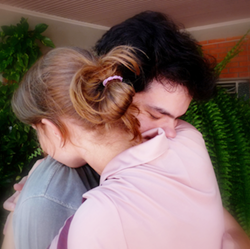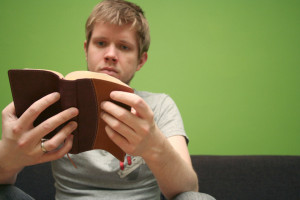
Contributor: W. Travis Stewart, LPC, NCC writer for Addiction Hope
What causes us to feel guilty? Seems like a simple enough question with a simple answer. Most people would respond by saying, “I feel guilty when I’ve done something wrong” but they fail to ask a deeper question, “According to what standard have I failed?”
There are at least two types of guilt; true guilt and false guilt.
True guilt results from breaking God’s commands to love God and love our neighbor.
False guilt happens when we fail to meet up to the standards for life that we have chosen to embrace.
- I should be a good father.
- I should not let my children feel pain.
- I should make more money.
- I shouldn’t be angry.
- I should get straight A’s.
- I shouldn’t make mistakes.
- I shouldn’t get caught.
- I should shouldn’t cheat.
- I should love my neighbor.
Whenever we become aware of our failure to meet these standards (ours or God’s) we experience guilt. How do we resolve this?
Standards
One question to ask is, “What is the source of my standards?” Another is, “How did I come to embrace this standard?” The answers may surprise you.
Maybe you don’t want your children to feel pain, not so much because you love them, but because when you see them experience pain you feel like you have failed as a parent.
Maybe you are not sure where the guilt comes from but you know that when you cheat it feels wrong, even if you don’t care enough to stop. This guilt comes from the moral compass God has placed inside us.
How do we deal with illegitimate guilt? We call it what it really is; self-protection.
 Many people I know are incredibly hard on themselves. They beat themselves up for not being kind to others or failing to perform tasks perfectly.
Many people I know are incredibly hard on themselves. They beat themselves up for not being kind to others or failing to perform tasks perfectly.
Usually this is driven, not by a deep love for others but, by a need to live according to some self-constructed image and feel accomplished, successful or like a “good Christian.”
This type of false guilt will only begin to fade away when you see it for what it is and reorienting yourself to love.
True guilt can only be released by forgiveness from the one you have offended. The release of true guilt is a rather passive experience. You go to the one offended and ask for forgiveness. They do the forgiving.
Humanly this is not always possible. The person may have died, be unavailable, or even unwilling to forgive you. This does not mean you cannot experience forgiveness. God is ultimately the Forgiver. God is the one who has taken guilt upon his shoulders and borne it for you.
Whenever possible go to the person whom you have offended. Name what you have done. No excuses. Own your choices.
And don’t refuse forgiveness out of some sense of pride or that your sin is “too much” to be forgiven. That’s arrogance. Your sin is not bigger than the person’s ability to forgive. If you refuse their forgiveness you are once again putting yourself above them. That’s what got you into trouble in the first place.
Community Discussion – Share your thoughts here!
What has been your experience with forgiving others and forgiving yourself? What advice do you have to share?
 About the author: Travis Stewart earned a Master of Arts in Counseling (2001) and a Master of Arts in Theological Studies (2003), both from Covenant Seminary in St. Louis, MO. Travis is a Licensed Professional Counselor in the State of Missouri and a writer for Eating Disorder Hope and Addiction Hope.
About the author: Travis Stewart earned a Master of Arts in Counseling (2001) and a Master of Arts in Theological Studies (2003), both from Covenant Seminary in St. Louis, MO. Travis is a Licensed Professional Counselor in the State of Missouri and a writer for Eating Disorder Hope and Addiction Hope.
The opinions and views of our guest contributors are shared to provide a broad perspective of addictions. These are not necessarily the views of Addiction Hope, but an effort to offer discussion of various issues by different concerned individuals.
We at Addiction Hope understand that addictions result from a combination of environmental and genetic factors. If you or a loved one are suffering from an addiction, please know that there is hope for you, and seek immediate professional help.
Last Updated & Reviewed By: Jacquelyn Ekern, MS, LPC on December 15, 2015
Published on AddictionHope.com
